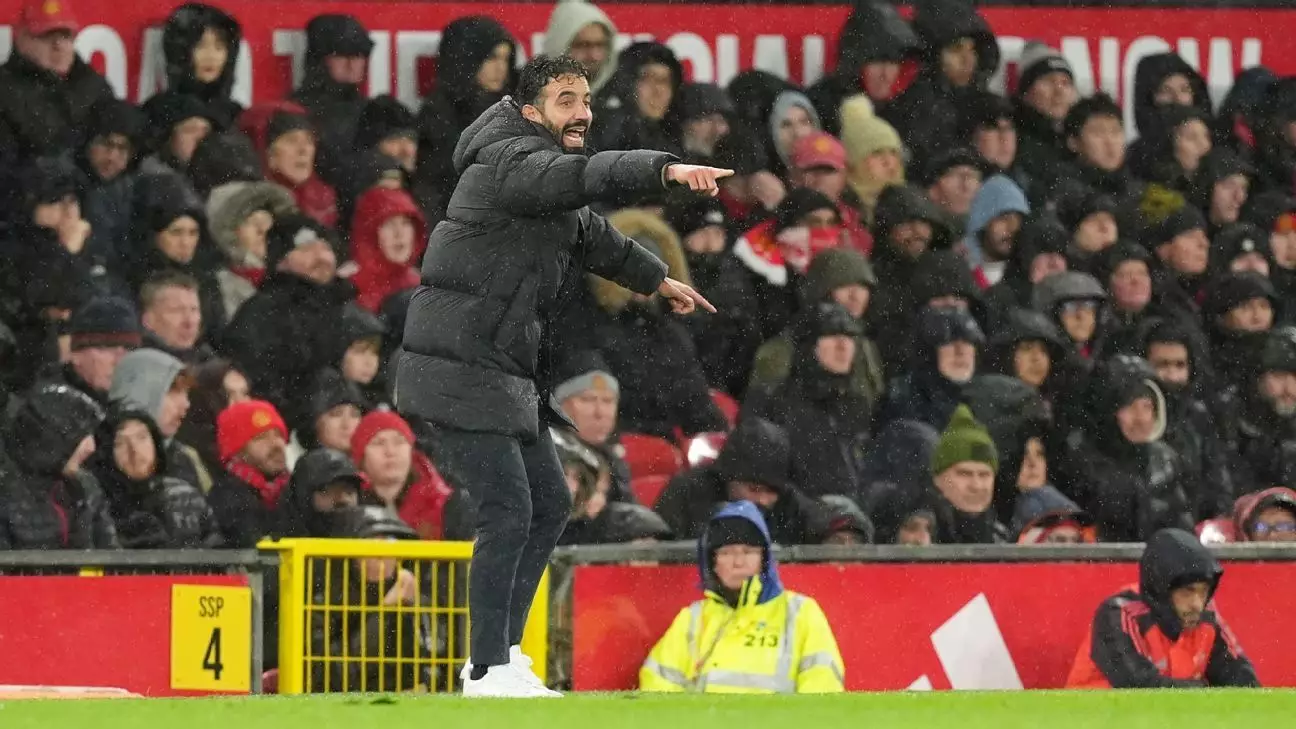In a dramatic turn of events, Nottingham Forest triumphed over Manchester United at Old Trafford, marking their first victory on the storied ground in three decades. The 3-2 defeat not only shocked the home crowd but also served as a stark reminder of the challenges facing United this season. This loss proved particularly painful for manager Ruben Amorim, who experienced consecutive losses in the top flight for the first time since his tenure at Sporting CP.
The match highlighted deeper issues within the United squad. Currently sitting at 13th in the Premier League, United has amassed a mere 19 points from 15 matches—its weakest start since the 1986-87 season. Amorim spoke candidly about the uphill battle ahead; he acknowledged not only the pressure of performing at one of football’s most recognizable institutions but also the emotional toll that defeat takes on players and fans alike.
The Manchester United brand carries an immense legacy, filled with expectations that can bear down on its players like an avalanche. Amorim conceded that while he has managed through tough periods before, this environment is unique due to the sheer scale of attention on the club. “It’s a long journey back,” he declared, stressing the importance of resilience and the need to refocus efforts on improvement rather than solely dwelling on setbacks.
This mindset propelled the team to victories on the pitch previously, and Amorim believes it can serve them well now. The club’s supporters are feeling the weight of disappointment after such a long and illustrious history. Understanding the emotional atmosphere post-defeat is crucial for a manager who aims to uplift spirits amidst adversity.
The match itself showcased alarming defensive frailties that Amorim and his squad must address if they hope to turn their fortunes around. Catalogued mistakes from key players, including defensive errors that led to each of Forest’s goals, painted a picture of a team still searching for stability. Lisandro Martínez’s failure to challenge for an early corner, a misplaced pass from Bruno Fernandes, and a performance from goalkeeper André Onana riddled with blunders all contributed to the mounting pressure on United.
Amorim argued that these types of struggles are not unique to Manchester United, referencing similar periods he faced at Sporting CP. His experience indicates that many clubs go through such challenging phases, and the key lies in maintaining a consistent approach to training and performance improvement.
Despite the current setbacks, the narrative need not be a tale of despair. There are still glimpses of hope and potential within the squad that can be harnessed as they look forward. Amorim’s emphasis on focusing on performance rather than result-driven outcomes suggests a long-term vision that may help in mitigating the immediate pressures of league standings.
The road to recovery for Manchester United may indeed be long and fraught with challenges, but for those within the club, the objective remains clear: endure the storms of today to pave the way for a brighter future. Education, persistence, and faith in the process may very well define not just the remainder of the season, but the legacy of Ruben Amorim at the helm of the club.
